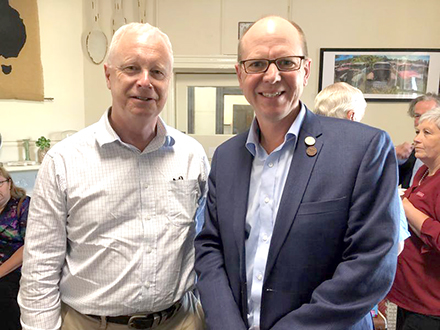The various reviews, inquires and commissions into the nation’s devastating 2019-2020 bushfires seem to be having some mixed, if not conflicting results. The South Australian Government is to be applauded for biting the bullet and committing $100 million to increase hazard reduction burns by more than 50% blunting the power of summer bushfires. Source: Bruce Mitchell
It has wisely accepted the findings of former Federal Police commissioner Mike Keelty who reviewed the 2019-2020 fires in SA.
In his review Mr Keelty said that hazard reduction would not have affected last season’s devastation.
But Mr Keelty did point out “hazard-reduction by all – public and private land holders alike – has to be understood and requires an investment of time and money”.
The SA Government agrees, and quite rightly sees hazard reduction as one piece of the puzzle to help reduce the impact of bushfires.
Victoria’s Inspector General for Emergency Management Tony Pearce recognition of the Victorian timber industry’s role in bushfire management is also to be congratulated.
In his Inquiry Into the 2019-20 Victorian Bushfire Season he has warned that the plan to shut down the industry will compromise the state’s bushfire response capacity.
And he said that “cessation of native forest harvesting by 2030 poses challenges for the fuel management program and bushfire response capacity across the state”.
All quite true.
But, sadly, in a 300-plus word report that was pretty much all the recognition the timber industry got.
Important words, but sadly words that will probably be conveniently overlooked by a State Government hell-bent on shutting down the industry.
On a national level, three experts with extensive expertise in bushfires claimed this week that the Bushfires Royal Commission is – based on its interim observations – on a disaster course
The trio; Phil Cheney, a respected bushfire scientist, David Packham who is a renowned bushfire expert and Tim Malseed who is the president of firestickestate.com, wrote in the Weekly Times that the Royal Commission has not properly investigated the impact of current land management policies on forest fire suppression, particularly initial attack by dedicated forest firefighters.
They say the solution to this problem has been known for decades starting formally with the 1939 Stretton Royal Commission.
Extreme bushfires are not “natural disasters”, as the government claims.
The trio wrote that bushfires are caused by government negligence towards hazard-reduction.
As we have reported before, there have been 57 formal public inquiries, reviews and royal commissions related to bushfires and fire management since 1939.
That is more than one inquiry every two years in the past 80 years, according to Kevin Tolhurst Associate Professor, Fire Ecology and Management, University of Melbourne.
His argument earlier this year was, do we need yet another?
Rather than using time and resources on inquiry No 58, he said we should instead commit to fully implement the recommendations of all the previous inquiries, reviews and royal commissions we have already held.
Another royal commission will only reiterate what we have known for decades.
It seems South Australians have a State Government that is prepared to listen and act on bushfire reviews, and fully support targeted burns and recognise the benefits. Queensland is the same.
Victorians, on the other hand, don’t.
The Nationals voiced serious ongoing concerns over the lack of fuel reduction undertaken by the State Government there and have pointed out repeatedly that in 2014/2015 $50 million was spent on direct fire management activities. Last year only $18 million was spent on direct fire management activities.
South Australia has seen the light and is and committing $100 million to harzard reduction.
That’s probably something for the Royal Commission to think about.







